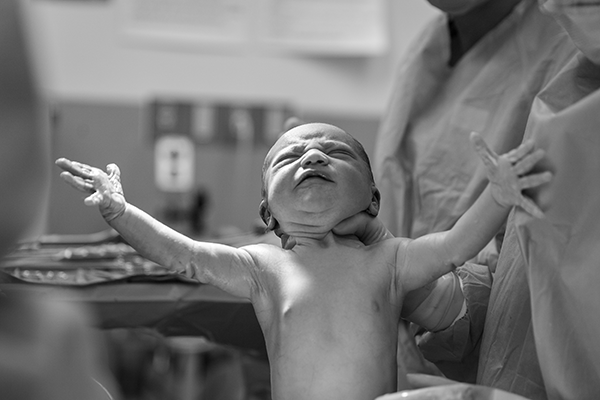Pro-life or Pro-birth? A Question of Consistency

As Christians we hold the conviction of the sanctity of human life. That is, we believe we are bearers of the divine image and that God is the author of life. For that reason we are opposed to the evil of abortion that has been a scourge on American society since the infamous Roe v. Wade decision of 1973. Since the Supreme Court’s ruling, over 59 million abortions have taken place in the United States. That number exceeds the population of Canada!
There are a few encouraging signs on the horizon. In September of this year the House of Representatives passed a bill banning abortion after 20 weeks based on the argument that these babies in utero can experience pain. Because of the hard work of pro-life agencies, a good number of restrictions have helped to reduce abortion rates to their lowest level since Roe. However, the House bill faces an uphill battle in the Senate which has yet to set a date to bring it to the floor.
Recently, Christianity Today published an article by Matt Reynolds entitled In Defense of Pro-Life Hypocrisy in which he addresses the tendency of some to extend the pro-life cause to a host of other issues. It reminded me of a discussion I had with a Christian sister who was supporting a pro-choice candidate. Her argument to me was that too many Christians are more pro-birth than they are pro-life. In other words, just being against abortion does not make one pro-life. The insinuation is that we care more about children in the womb than we do those outside it. Liberals love to say that we’re for a child born but not a child fed, or a child educated, or a child housed.
While I resent the implication, it does give one pause to carefully examine his pro-life position. It goes to the issue of consistency. We need to be very careful to make sure that our beliefs coincide with the way we live our lives; what candidates we support and where we make charitable donations. If we proclaim ourselves to be pro-life, it becomes necessary to identify other issues that are connected to the sanctity of human life. For example, a true pro-lifer would be against euthanasia, physician-assisted suicide, and abortifacient birth control.
If we proclaim ourselves to be pro-life, it becomes necessary to identify other issues that are connected to the sanctity of human life.
While it’s important to be consistent in your beliefs, it’s even more important to be discerning. This is where we must recognize the difference between the means and the end. For example, does being pro-life demand that I stand against capital punishment? Obviously, there is a huge difference in an innocent child within the womb and a murderer on death row. Furthermore, does my desire to see children properly cared for mean that I must endorse every government program created for that end? Is it compassion or ignorance that assumes the answer to every social problem in our country is more government?
Being pro-life certainly does mean more than opposing abortion. However, my pro-life conviction does not require me to forfeit my 2nd amendment rights, support climate change legislation, or favor increased spending on welfare programs. Yet these are all arguments often made by those who support abortion on demand. They accuse us of being inconsistent because, in their minds, to be pro-life means you must also support every cause they consider to be “pro-life.” Again, they are confusing the means and the end.
Years ago, I had to redefine my support of birth control when I was informed by some of my Catholic friends that most of the birth control on the market at that time was, in fact, abortifacient. It is horribly inconsistent for Christians to say they are pro-life and yet use or condone birth control which causes the destruction of a human embryo. But at the same time, those who disagree with us over abortion also fall short of consistency when they apply the term “pro-life” to issues than are in no way connected with the unborn.